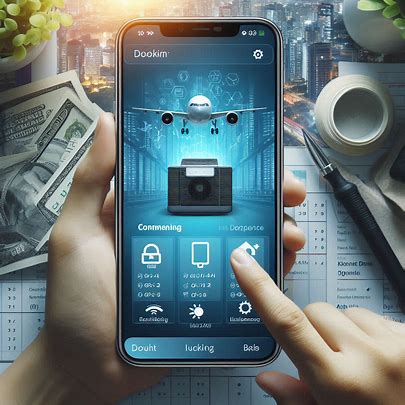
South Korea is one of the most connected countries in the world. High-speed internet and a tech-savvy population make it a hotspot for digital innovation. For anyone interested in technology, software communities, and the latest online trends, Korean websites offer a unique perspective and valuable resources. From news portals to coding forums, these platforms keep users informed and connected.
Curated link collections are perfect for discovering quality tech content. For instance, the site JusoJura (translates to 링크모음사이트), a link collection site, provides easy access to verified Korean platforms covering a wide range of topics. Visitors can find everything from gadget reviews to coding tutorials, all organized neatly for quick browsing. This makes it simple for enthusiasts to explore new software tools, digital services, and online communities without wasting time searching through unverified sources.
Top Korean Tech News Portals
Keeping up with the latest tech news is crucial for digital enthusiasts. Sites like ZDNet Korea and ETNews focus on IT, electronics, and innovation, offering timely reports on software releases, hardware launches, and market trends. Articles often include expert opinions and analysis, helping readers understand the impact of new technology on daily life and business.
Some portals also cover startups and entrepreneurship. This is useful for those looking to launch tech-based businesses or invest in innovative products. Many of these sites include interviews with industry leaders, giving readers insider knowledge about the Korean tech landscape.
Active Software Communities and Forums
Forums and online communities are where knowledge sharing thrives. Platforms like Clien and ITWorld Korea allow users to discuss programming, AI developments, and cybersecurity. Members exchange tutorials, troubleshoot coding problems, and even collaborate on open-source projects. These communities are especially helpful for learners who want practical experience and mentorship from experienced developers.
Participation in forums also provides networking opportunities. Many Korean tech communities host virtual events, webinars, and hackathons. Engaging with these activities helps enthusiasts stay up-to-date while building valuable connections in the industry.
Educational Resources and Coding Platforms
Learning new skills is easier with the right online tools. Korean websites like Inflearn and FastCampus offer courses on programming languages, data analysis, and digital marketing. These platforms focus on hands-on learning, providing projects and exercises that reinforce concepts effectively.
Many courses are designed for both beginners and advanced learners. From web development to AI, students can choose the pace and depth that suit their needs. The platforms also offer community support, ensuring learners can ask questions and receive feedback during their study.
Tech Reviews and Gadget Insights
Knowing which gadgets and software tools are worth investing in is essential. Korean review websites provide in-depth analyses of smartphones, laptops, and apps. They test products rigorously and offer comparisons, making it easier for users to make informed decisions. Popular sites include IT Chosun and Digital Times, which cover both consumer electronics and enterprise solutions.
Some platforms include user-generated reviews. This adds a personal perspective, helping readers gauge real-world experiences. Whether you are looking for a new smartphone or a coding app, these reviews provide practical guidance before making purchases.
Why Korean Tech Sites Are Valuable
Exploring Korean tech websites exposes users to different perspectives. The country’s innovation-driven culture ensures that content is forward-thinking, often highlighting technologies that may not yet be mainstream elsewhere. Additionally, the communities are highly interactive, offering support and collaboration that enhance learning and problem-solving.
For tech enthusiasts and professionals alike, these platforms are indispensable. They provide information, resources, and networking opportunities that can accelerate career growth and personal projects. Whether you are a student, developer, or entrepreneur, regularly visiting these websites ensures that you remain informed and inspired in the fast-paced digital world.
Staying ahead in technology requires a mix of news, education, and community engagement. Korean websites cater to all these needs with organized content, expert insights, and interactive forums. By exploring curated link collections, readers can easily navigate the best resources without getting lost in the vast online space.
READ ALSO: Removing Obstacles – Value of Web Accessibility
Conclusion
Korean websites offer a valuable hub for tech enthusiasts. From curated news portals to active forums and educational platforms, these sites provide tools and information to stay competitive in technology. Exploring platforms like JusoJura ensures access to high-quality resources and vibrant communities, keeping users connected to the latest trends and innovations.
Engaging with these websites can lead to better knowledge, improved skills, and meaningful professional connections. For anyone passionate about technology, these platforms are worth exploring regularly.
 Network solutions are effective in enhancing speed, security, and accessibility. Optimized connectivity helps in the productivity and satisfaction of users in various sectors.
Network solutions are effective in enhancing speed, security, and accessibility. Optimized connectivity helps in the productivity and satisfaction of users in various sectors.





 Chewing Gum and FastCampus are common in pragmatic digital courses in data, codifying, and selling.
Chewing Gum and FastCampus are common in pragmatic digital courses in data, codifying, and selling.

 Over 70% of Australian households rely on air conditioning to stay cool during summer. With Brisbane’s hot and humid climate, keeping air conditioning units clean and functioning correctly isn’t just a convenience—it’s essential. However, arranging for a service used to mean endless phone calls, waiting times, and uncertainty about when the technician would arrive. That’s all changing now.
Over 70% of Australian households rely on air conditioning to stay cool during summer. With Brisbane’s hot and humid climate, keeping air conditioning units clean and functioning correctly isn’t just a convenience—it’s essential. However, arranging for a service used to mean endless phone calls, waiting times, and uncertainty about when the technician would arrive. That’s all changing now. Online shopping has changed how we buy everything, including liquor. With a few clicks, you can have premium spirits delivered to your door. But what powers this seamless experience? The technology behind online liquor platforms combines robust security, intuitive design, and smart logistics to make purchasing alcohol safe and easy. Let’s dive into the systems and features that let you stock your bar without leaving home.
Online shopping has changed how we buy everything, including liquor. With a few clicks, you can have premium spirits delivered to your door. But what powers this seamless experience? The technology behind online liquor platforms combines robust security, intuitive design, and smart logistics to make purchasing alcohol safe and easy. Let’s dive into the systems and features that let you stock your bar without leaving home. Mass datasets used in training for artificial intelligence systems can reflect and magnify current prejudices. Discriminatory results in fields including financing, hiring, and criminal justice can follow from this.
Mass datasets used in training for artificial intelligence systems can reflect and magnify current prejudices. Discriminatory results in fields including financing, hiring, and criminal justice can follow from this. The auto repair industry has experienced a significant transformation thanks to the integration of internet technology. From diagnostics to customer service, technology has streamlined processes, improved accuracy, and enhanced convenience for both mechanics from autotronicspa and car owners.
The auto repair industry has experienced a significant transformation thanks to the integration of internet technology. From diagnostics to customer service, technology has streamlined processes, improved accuracy, and enhanced convenience for both mechanics from autotronicspa and car owners.


